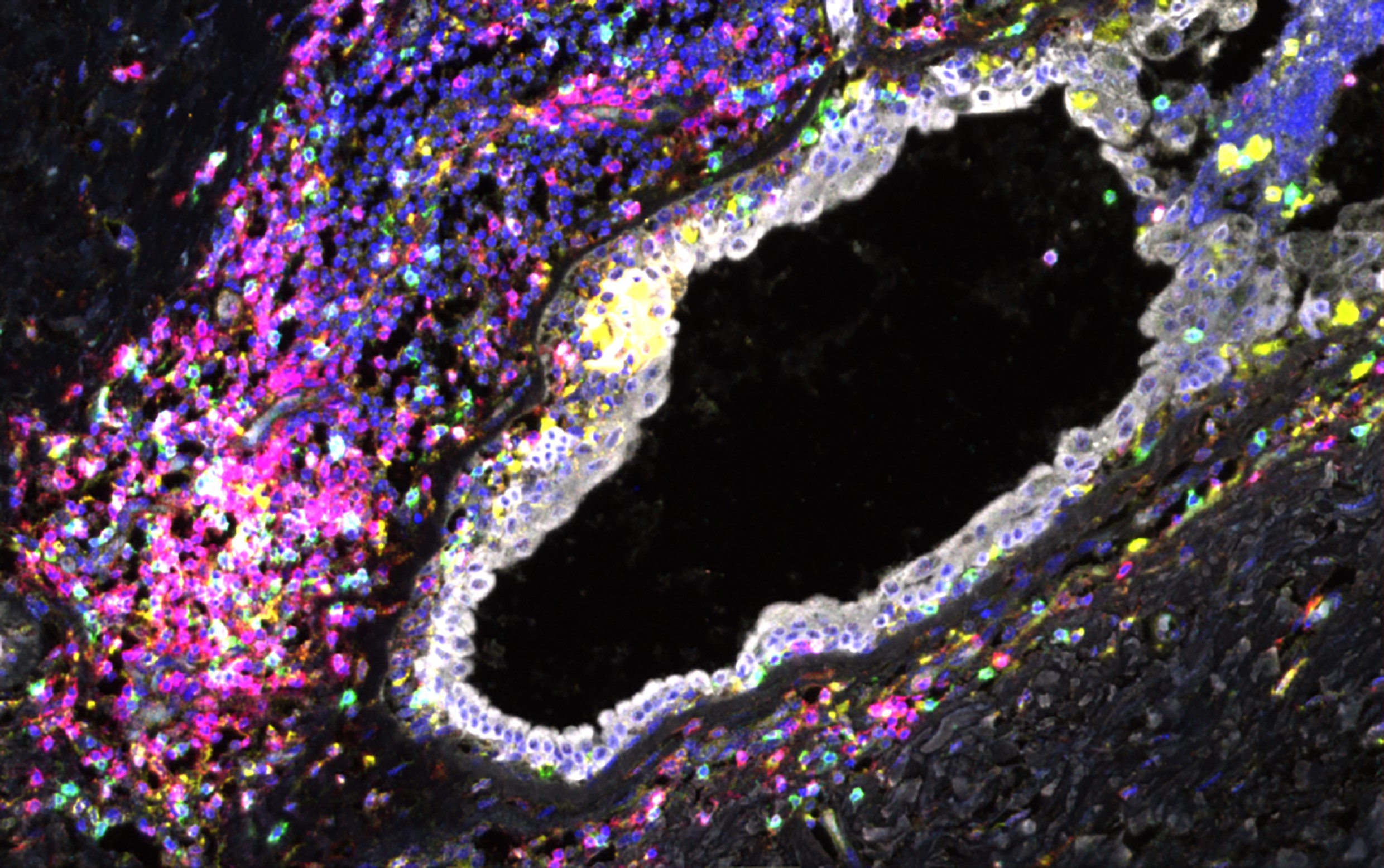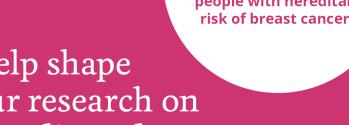Professor Walid Khaled
Epithelial cell fate and tumour development
Email: wtk22@cam.ac.uk
Laboratory Location: Department of Pharmacology
Departmental Affiliation: Department of Pharmacology
Biography
Walid’s team is interested in understanding the early steps of epithelial tumour initiation and how that can be used for early detection and prevention of cancer. In 2007, Walid completed his PhD at the Department of Pathology, Cambridge with Prof. Christine Watson working on mammary gland development. In 2008, he was elected to a Junior Research Fellowship, at King’s College, Cambridge and 2009 joined the Sanger Institute as a Postdoctoral fellow with Dr. Pentao Liu working on BCL11A and Triple Negative Breast Cancer. In 2013, he returned to Cambridge as a Lecturer at the Department of Pharmacology and in 2014 he was awarded a CRUK Career Establishment Award to work on breast epithelial tumour biology followed by a Programme foundation Award in 2021 to continue his study on epithelial tumour initiation. During this period Walid’s team became one of the first to use scRNAseq to identify the cellular changes in the normal and preneoplastic mouse and human mammary gland. He co-leads the Human Breast Cell Atlas initiative. Walid’s team is also working on the cancer resistance mechanisms of the Naked Mole-Rats. Walid is a group leader at the Wellcome-MRC Cambridge Stem Cell Institute, faculty member of the Breast Cancer Programme in the Cambridge Cancer Centre, fellow of Magdalene College, Cambridge, Walid co-leads the Ageing Cluster part of the UKRI, National Mouse Genetics Network and co-leads the Reproduction Development and Lifelong Health research theme within the School of Biological Sciences.
Research
Over the last ten years, Professor Khaled has established an ambitious research programme focusing on studying the early cellular and molecular changes associated with tumour initiation. His lab’s ultimate aim is to translate these discoveries into novel cancer detection and prevention methods. He has been awarded several grants, including two competitive fellowships from CRUK - Career Establishment Award (2014-2021) and Programme Foundation Award (2021-2027). During this period, his lab made significant contributions to the field, some of which are highlighted below.
His contributions to the field include making all the sequencing data generated in the lab publicly available through easy-to-use websites. He also shares the lab’s protocols through his website and some cases through youtube videos (eg. single cell prep for the human breast cell atlas).
Based on their single cell work in mouse and human they have identified several pathways that are associated with precancerous cellular changes in the women at high risk of breast cancer. This includes the observation that immune cells in the healthy breast tissue from BRCA1/2 high risk women exhibit an exhausted phenotype. These dysfunctional immune cells are normally only found at latestage tumours. With further funding from CRUK they started a pre-clinical trial to assess the efficacy of these drug paving the way to window of opportunity trials in human.
External Links
| Watch the lab on BBC News - Early warning for breast cancer |
| Watch the lab on BBC News - Breast milk research |
Key Publications:
- Reed A, Pensa S, Steif A, Stenning J, Kunz D, He P, Twigger AJ, Kania K, Barrow-McGee R, Goulding I, Gomm J, Jones L, Marioni JC, Khaled WT. A single-cell atlas enables mapping of homeostatic cellular shifts in the adult human breast. Nat Genet 56, 652–662 (2024). https://doi.org/10.1038/s41588-024-01688-9
- Twigger AJ, Engelbrecht LK, Bach K, Schultz-Pernice I, Pensa S, Stenning J, Petricca S, Scheel CH, Khaled WT. Transcriptional changes in the mammary gland during lactation revealed by single cell sequencing of cells from human milk. Nat Commun. 2022 Jan 28;13(1):562. Doi: 10.1038/s41467021-27895-0. PMID: 35091553; PMCID: PMC8799659.
- Bach K, Pensa S, Zarocsinceva M, Kania K, Stockis J, Pinaud S, Lazarus KA, Shehata M, Simões BM, Greenhalgh AR, Howell SJ, Clarke RB, Caldas C, Halim TYF, Marioni JC, Khaled WT. Time-resolved single-cell analysis of Brca1 associated mammary tumourigenesis reveals aberrant differentiation of luminal progenitors. Nat Commun. 2021 Mar 9;12(1):1502. Doi: 10.1038/s41467021-21783-3. PMID: 33686070; PMCID: PMC7940427.
- Hadi F, Kulaberoglu Y, Lazarus KA, Bach K, Ugur R, Beattie P, Smith ESJ, Khaled WT. Transformation of naked mole-rat cells. Nature. 2020 Jul;583(7814):E1-E7. Doi: 10.1038/s41586-020-2410-x. Epub 2020 Jul 1. PMID: 32612221.
- Lazarus KA, Hadi F, Zambon E, Bach K, Santolla MF, Watson JK, Correia LL, Das M, Ugur R, Pensa S, Becker L, Campos LS, Ladds G, Liu P, Evan GI, McCaughan FM, Le Quesne J, Lee JH, Calado D, Khaled WT. BCL11A interacts with SOX2 to control the expression of epigenetic regulators in lung squamous carcinoma. Nat Commun. 2018 Aug 20;9(1):3327. Doi: 10.1038/s41467-018-05790-5. PMID: 30127402; PMCID: PMC6102279.
- Bach K, Pensa S, Grzelak M, Hadfield J, Adams DJ, Marioni JC, Khaled WT. Differentiation dynamics of mammary epithelial cells revealed by single-cell RNA sequencing. Nat Commun. 2017 Dec 11;8(1):2128. Doi: 10.1038/s41467-017-02001-5. PMID: 29225342; PMCID: PMC5723634.




